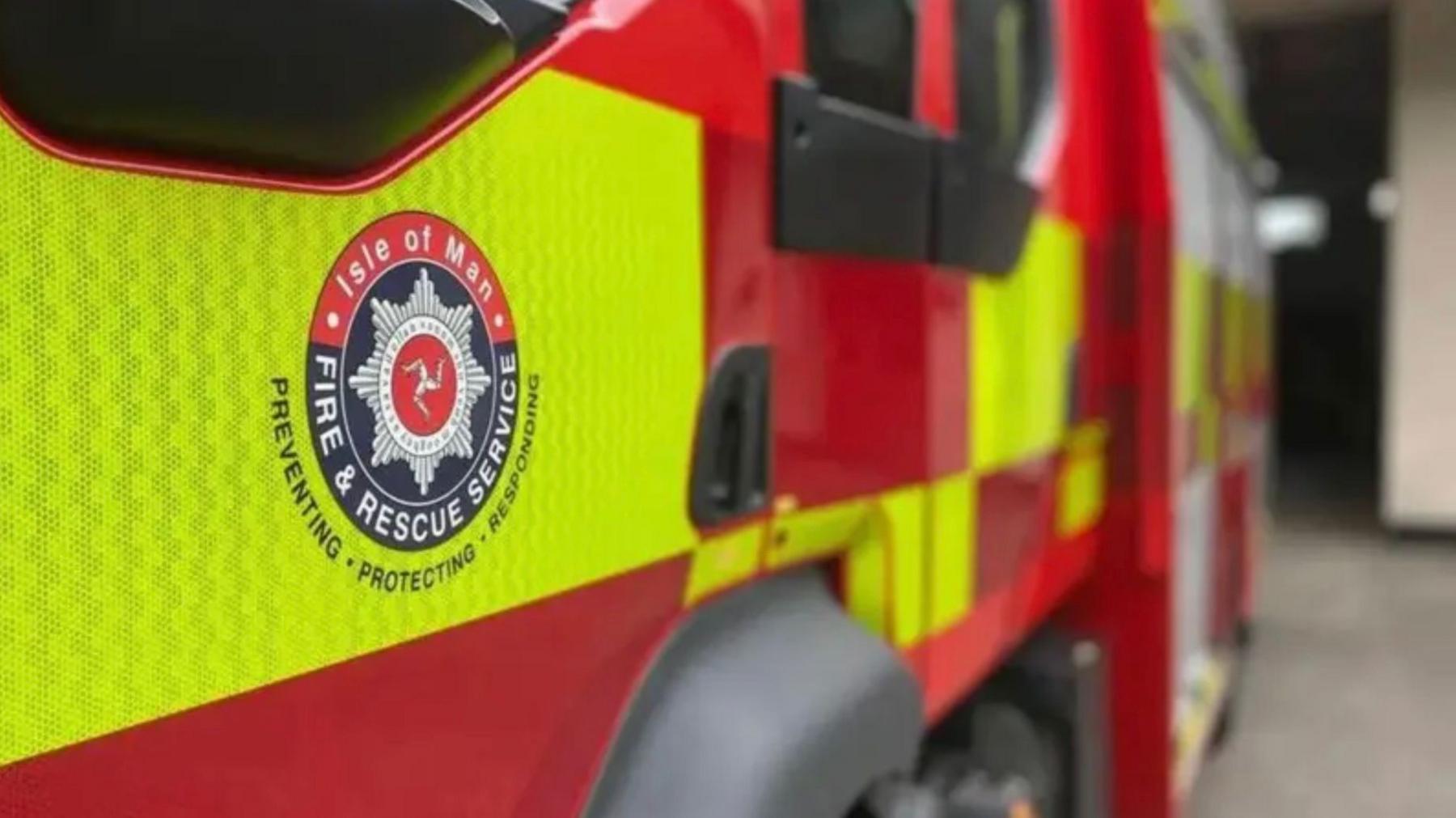'Life as an on-call firefighter isn't easy, but it's worth it'
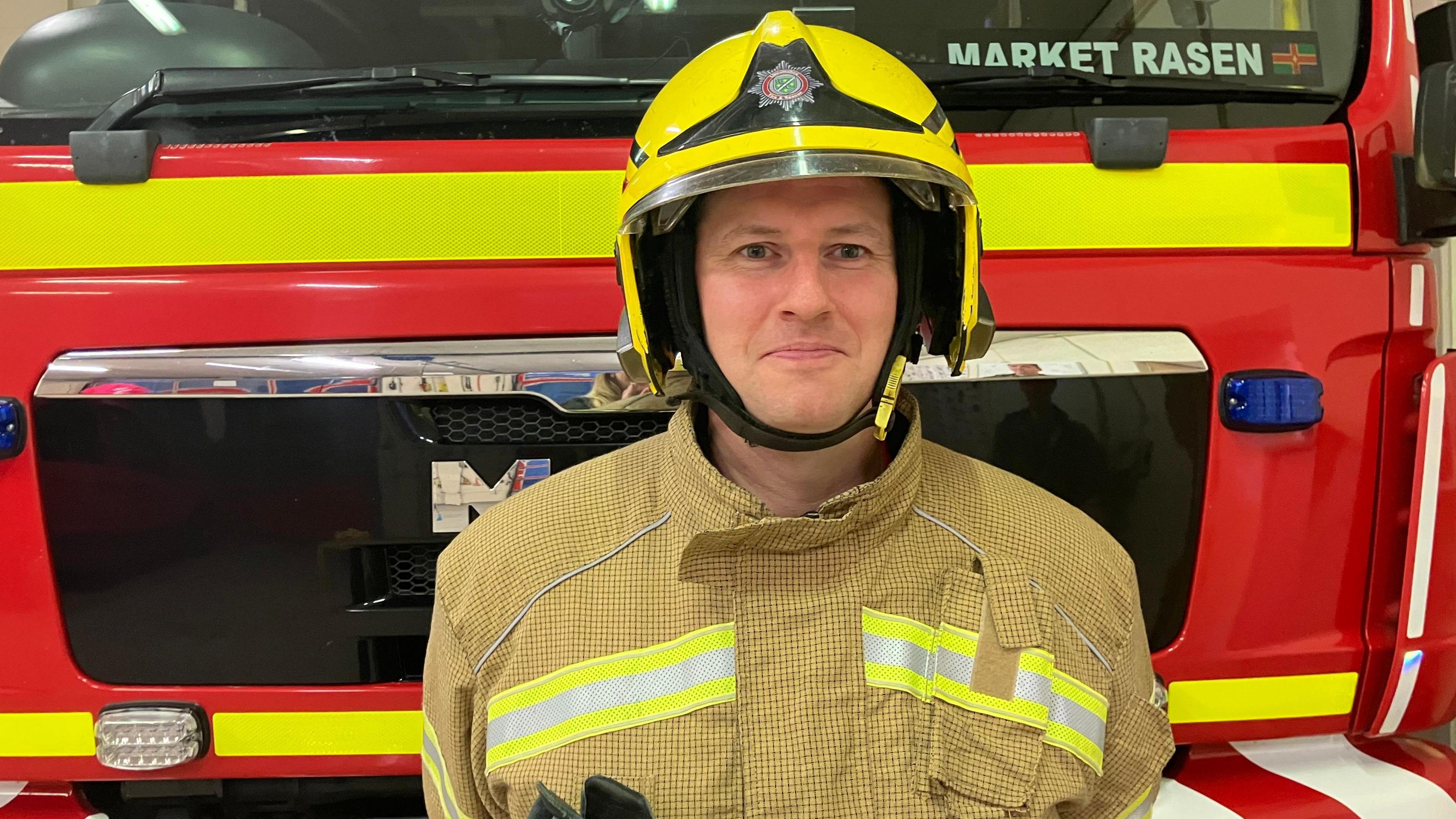
James Bennett, 36, is an on-call firefighter at Market Rasen station in Lincolnshire
- Published
The availability of on-call firefighters has dropped by 26% nationally over the last decade. Lincolnshire Fire and Rescue service is calling for more people to sign-up.
"I was bathing my two-year-old. I'm sat at the side of the bath with her playing, and an alert goes off," James Bennett says.
"I have to shout my missus upstairs and then I just run out. They don't know how long I'm going to be. It could be half an hour, it could be five hours."
James, 36, is a key account manager for a soffit ventilation manufacturer, but works as an on-call firefighter at Market Rasen during his spare time.
On another occasion, having just ordered a meal and drinks while out for dinner with his wife, James got an alert.
"I just go running out of the pub... sprint down the street and run to the station," he explains.
Despite joining the force 12 years ago, he still finds it tough to juggle the role with his full-time job and family life.
However, he says the struggle is worth it.
"It's the fact that you can help someone in their moment when they need you most. That's quite a powerful thing.
"If you can come away from a shout and think your actions as part of a team helped save someone's life... that's one of the most gratifying and biggest things you can do as a human being."
'Incredibly rewarding'
Rob Burns, 46, who is also on-call at Market Rasen station, adds: "You can just be driving down the road in the truck and everyone waves to you.
"It's nice to be recognised for what you do in the community.
"It's incredibly rewarding."
James thinks the reason behind the drop in numbers is due to the level of commitment required.
"You're relying on people wanting to do it and I think that's where the decline is," he says.
"It's in people wanting to give up their time and effort to do it."
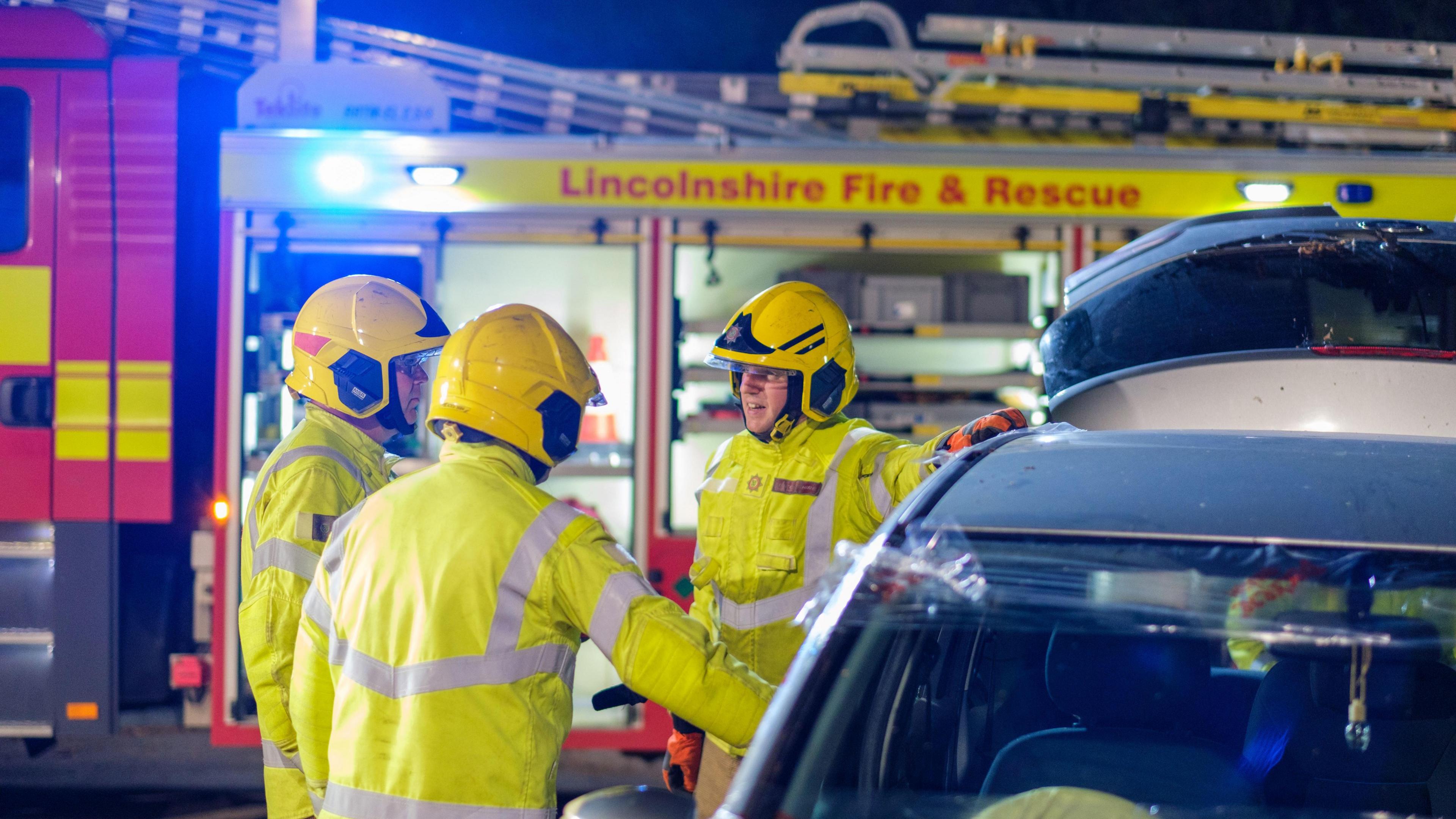
The crew at Market Rasen fire station hold drill nights on Mondays
In March last year, there were 7,967 on-call firefighters across England compared to 10,768 in March 2014 - a 26% decline, according to the government.
In the same period, there was a 13% drop in wholetime firefighters. However, in more recent years, while the reduction in on-call has continued, seeing a decrease of 15% compared with five years ago and 1.6% compared with one year ago, there was a small increase for wholetime firefighters (0.6%) over those five years.
Rural counties such as Lincolnshire rely heavily on on-call firefighters, with a number of stations fully dependant. According to Lincolnshire County Council, about two-thirds of the firefighters in the service are on-call.
Matt King, head of response at Lincolnshire Fire and Rescue, says the service works hard on recruitment and focus is on attracting more females and people from underrepresented groups.
"That's a national challenge that we have. I think that, perhaps, a stereotypical role of a firefighter might not appeal to all of those groups.
"It's an extremely challenging role, but it's not impossible," he says.
Depending on how many hours an on-call firefighter makes themself available for, fully-trained members can earn from £1,844 to £5,652 a year in Lincolnshire.
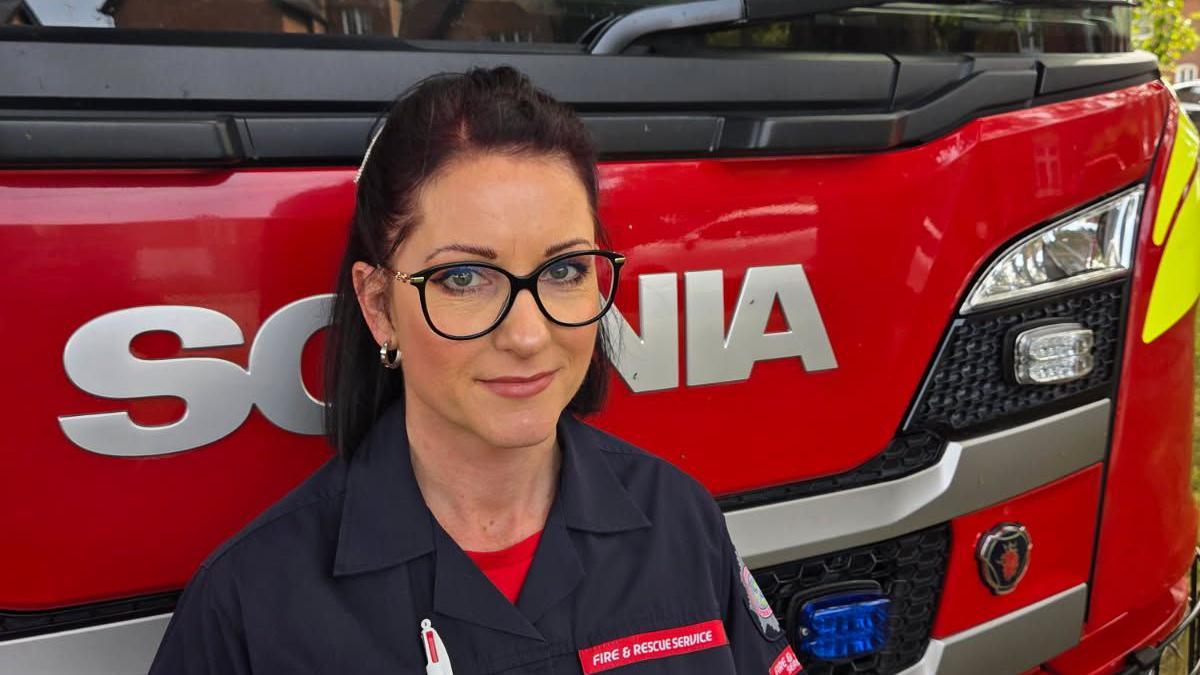
Natalie Clark, 48, runs a cleaning business and works on-call at Kirton Fire Station
Natalie Clark has been on-call at Kirton Fire Station for more than a year while running a cleaning business.
The 48-year-old says she was "hooked" ever since attending a "have a go" day nine years ago. However, due to being a single mum of two young children, she could not commit.
But when her children were both settled in secondary school, she applied.
"I knew I was going to do it. There wasn't going to be anything stopping me," she says.
"One minute I'll be sat there doing payroll or office type duties and the alert will go off and then off I go."
Natalie says the most rewarding part of her job is "making a difference".
"Knowing that your community knows that we're going to be out the door quick, our response times are really quick and they can rely on us.
"Without our trucks being on the run in the various villages in rural areas, response time would go down.
"So the recruitment drive is a contingency plan to ensure that we've got fresh people coming in with new training, new ideas."
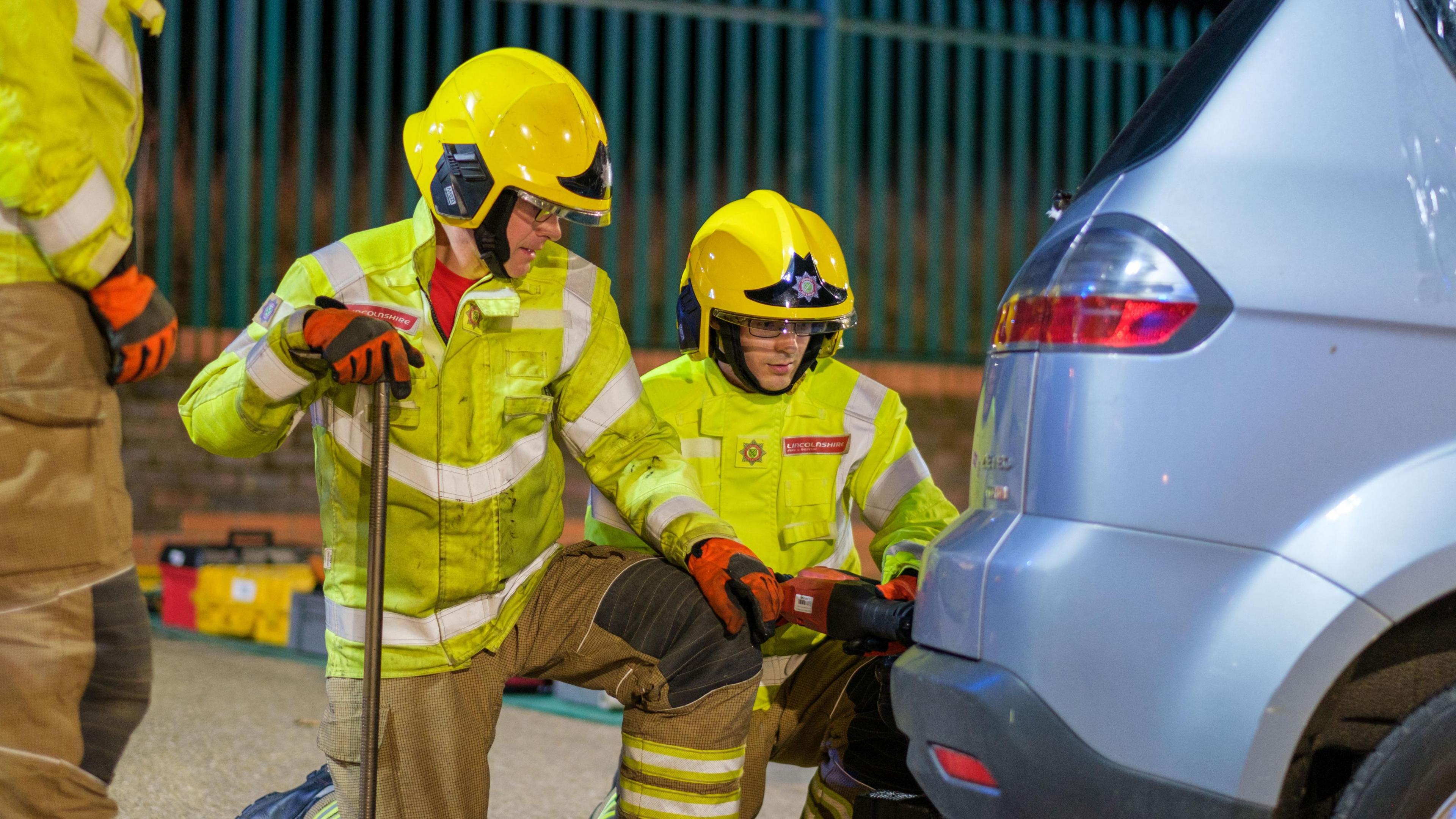
Ed Page, left, and a firefighter during a drill at Market Rasen station
Ed Page, who became an on-call firefighter to "give back to the community", says he "loves the challenge and excitement of it".
The 50-year-old, who is based at Market Rasen station, says: "Some of the situations are quite distressing, especially for the people involved.
"If you've been able to make a difference and reduce the risk or improve their situation and get them to a place of safety, it's just fantastic.
"There's no better feeling to have helped someone in that position. It's particularly satisfying and rewarding."
He says anyone who is interested should "just give it a go".
"Everyone's got their strengths and weaknesses and everyone brings something different to the team. Just give it a go. It's really, really rewarding."
Listen to highlights from Lincolnshire on BBC Sounds, watch the latest episode of Look North or tell us about a story you think we should be covering here, external.
Download the BBC News app from the App Store, external for iPhone and iPad or Google Play, external for Android devices
- Published3 September
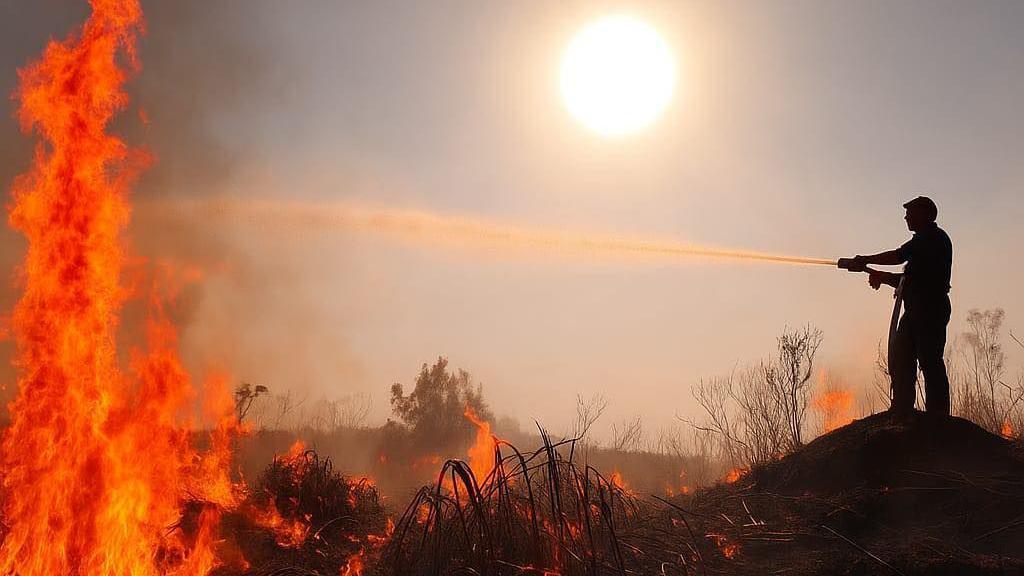
- Published5 August
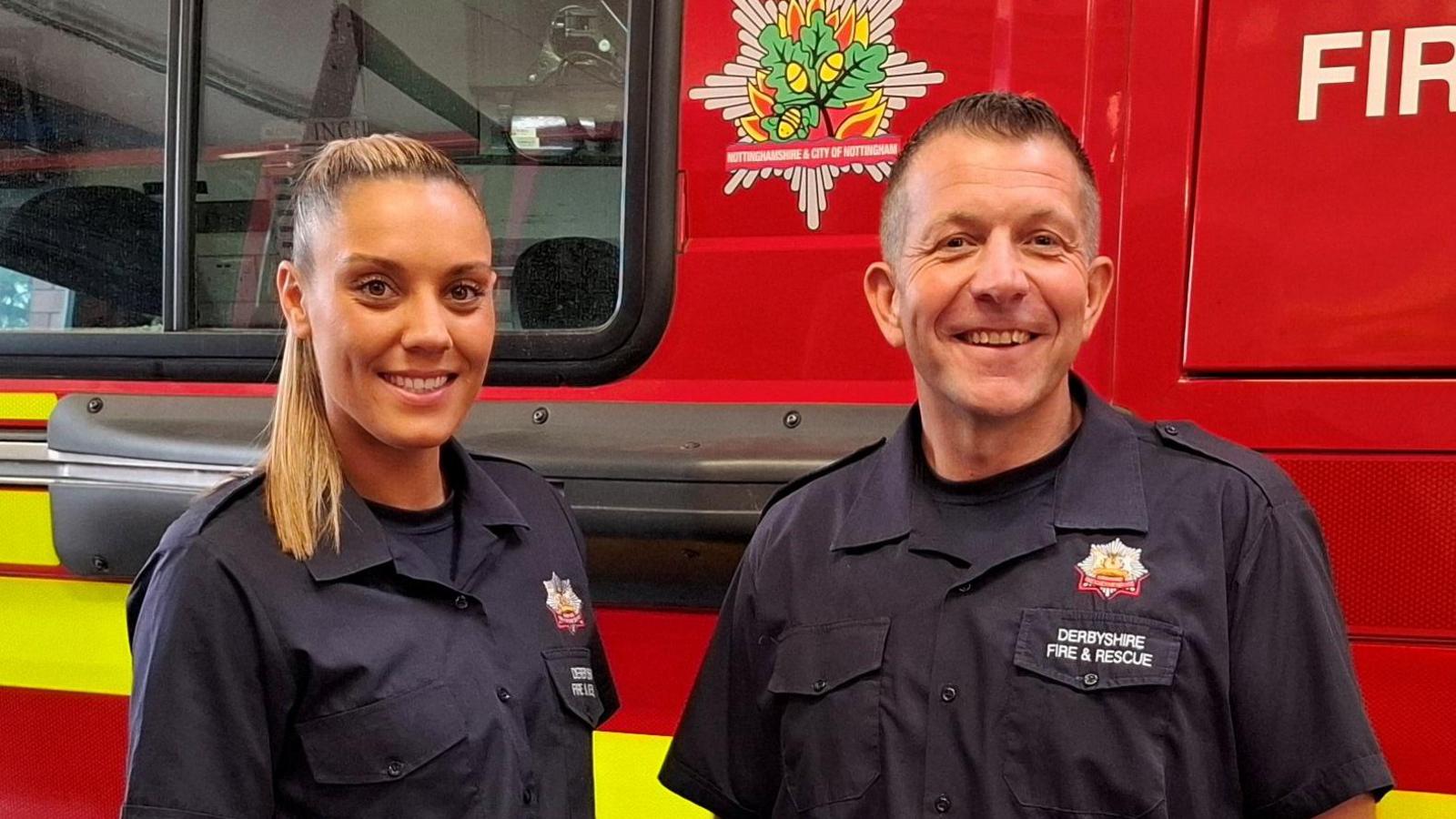
- Published6 September
